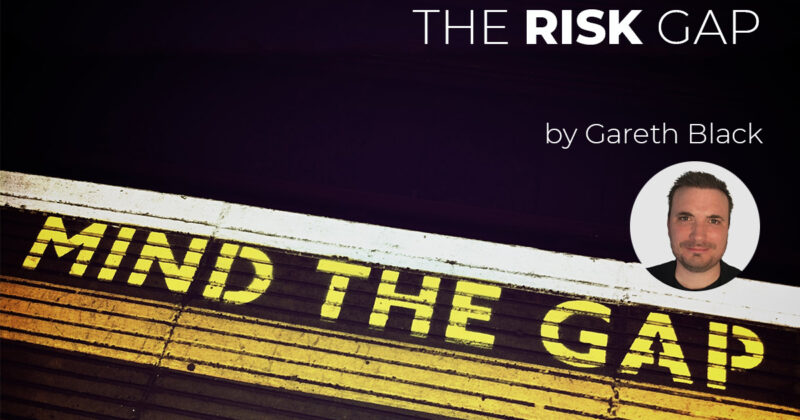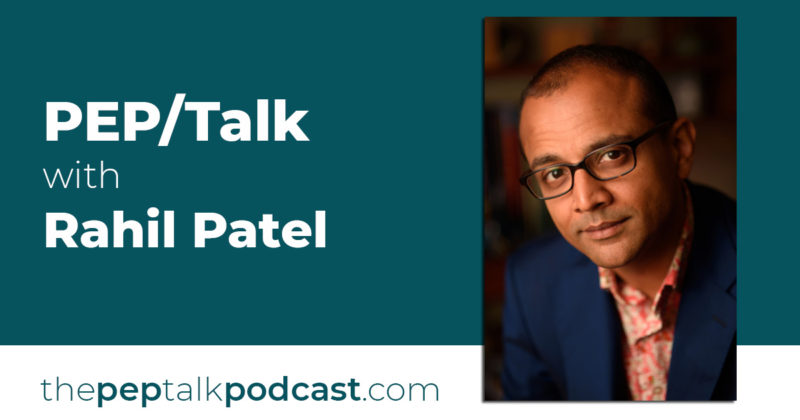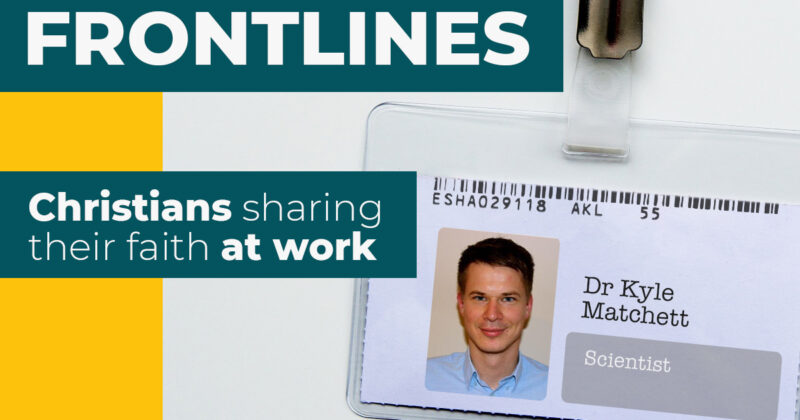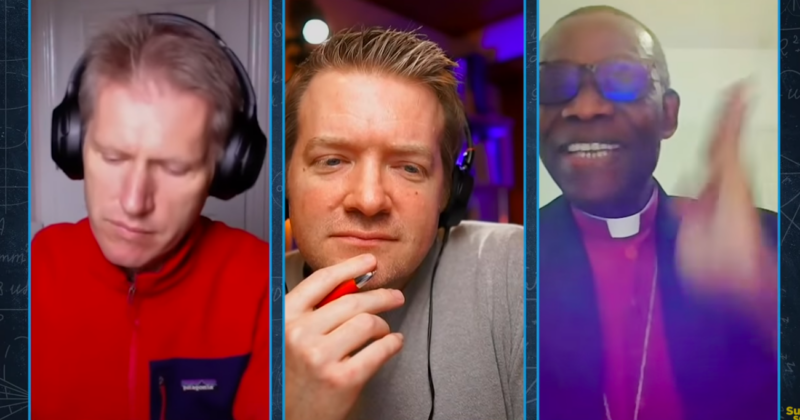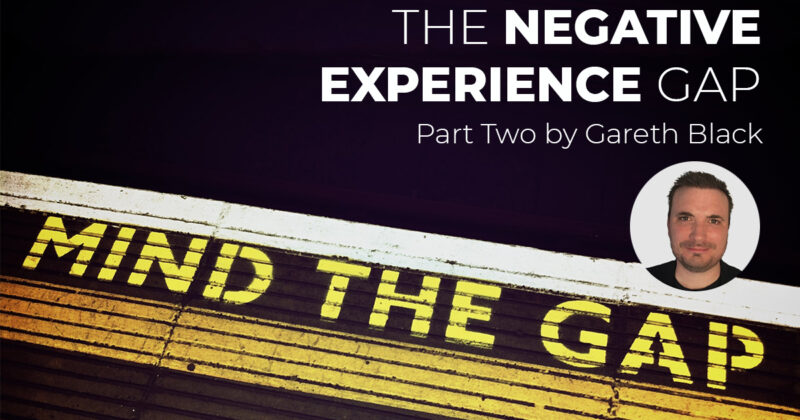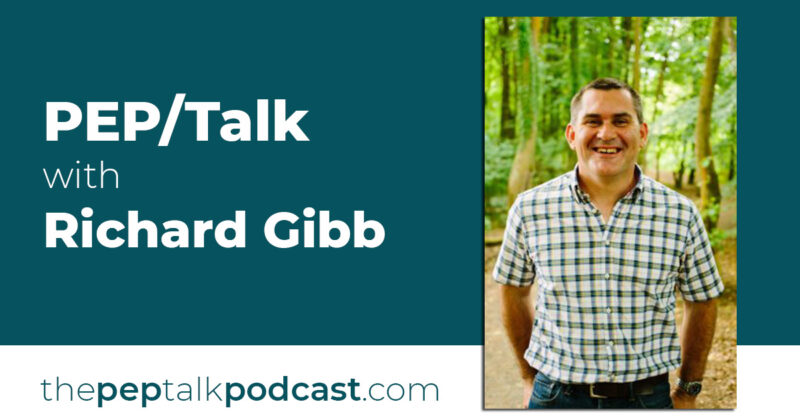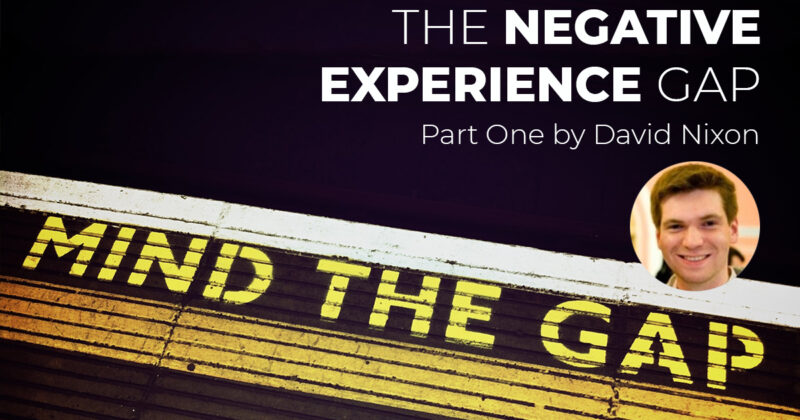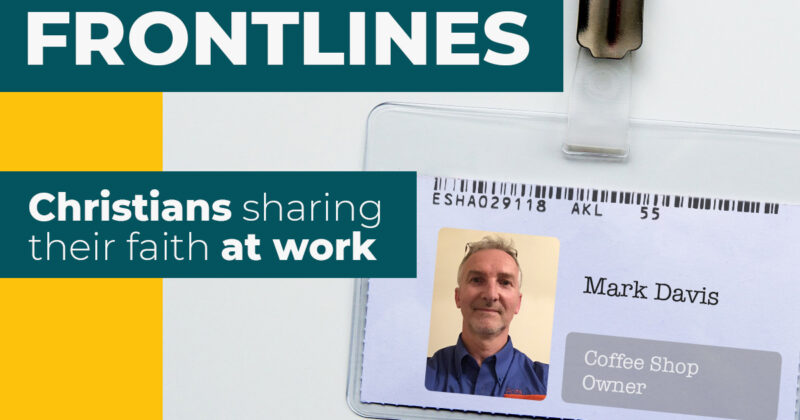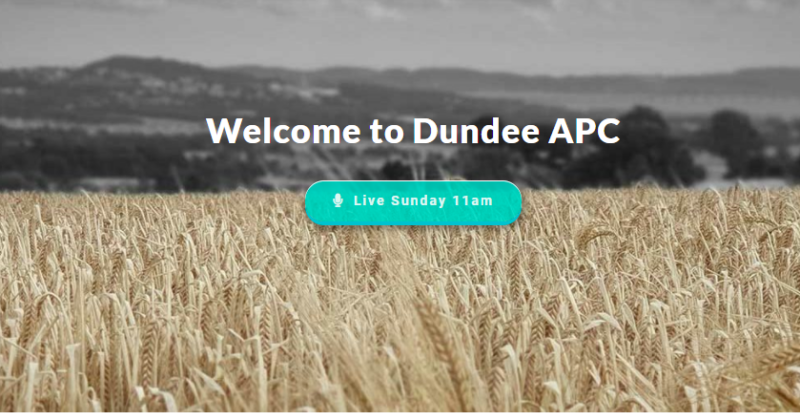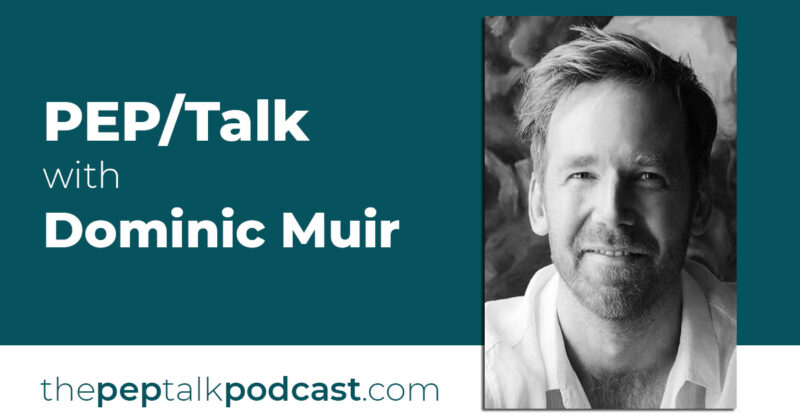Some years ago I was given the opportunity to move from my home in Northern Ireland and spend two years living and studying in Oxford. I had been offered a place to read for a theology masters at the university, as well as a position on an evangelism training programme run by a Christian apologetics centre in the city that I would do alongside my academic studies. I can remember being utterly flattered and enchanted by the opportunity: Here I was being invited to study at arguably the world’s most prestigious university; to be taught and mentored by people whom I regarded to be among the world’s leading Christian evangelists and apologetic thinkers. Yet when the romantic fantasies of Oxford’s dreaming spires faded and I sobered up to what the practical realities of going would demand, the inconvenient truth that the whole enterprise was actually a huge risk dawned on me rather uncomfortably. There was the professional and financial risk: Living and studying in Oxford would cost tens of thousands of pounds and going would mean abandoning both a job I enjoyed and an stable income, as well as having no guarantees of future employment once my studies were complete. There were the academic and psychological risks: Would I have the ability and resilience to cope with the intellectual and emotional challenges of so rigorous an academic environment? There was the relational risk: Due to circumstances beyond our control, my wife was unable to join me in Oxford for the first year. What pressures might this bring to our fledgling marriage and would we be able to cope? And there was even the faith risk: I had heard horror stories of deeply sincere believers who had had their faith shipwrecked when studying theology at top secular universities. How would my faith fair in the inevitable crucible of being confronted with ideas and arguments contrary to what I had hitherto believed?
As I crossed the Irish Sea heading for Oxford that September morning I had no idea what the answers to these questions would be. There were no guarantees that it would all work out positively, no assurances that I would not need to come home after one term to search for a new job and face the embarrassment of needing to explain the situation to people – some of whom had financially supported my going. Thankfully, none of these fears were realised and what transpired into the five years that my wife and I spent in Oxford proved to be the most beneficial and formative season of our lives so far. Yet it was an experience that we would never have known had we not been prepared to embrace the opportunity in spite of the inherent risks. As I left Ireland for Oxford that first day, all I had was an open door of opportunity, the promise that God would be with me, and a sense that this was what the Lord wanted me to do even though it didn’t come with any certifications that it would all work out. But it was enough. Like Moses (Ex. 3:12), I would have to discover in retrospect that this was precisely what God wanted me to do – and not because the entire experience was smooth or simple!
In many ways, Christian evangelism is a lot like this. There is simply no getting around the fact that public witness to Jesus is an inherently risky affair – no matter how gifted or experienced we might be. There is simply no guarantee that people will react positively to the Gospel or, indeed, to us as bearers of it. Jesus forewarned his disciples that even though God himself had specifically chosen them to bear his fruit in the world, many in that world would both hate and even persecute them on account of his name (Jn. 15:16-16:4). When they then began their witness to the world there were, of course, many who became followers of Jesus. Yet the New Testament is also painfully honest that they were also regularly maligned, misrepresented, socially ostracised and even imprisoned for communicating a message considered an offence to most Jews and foolishness to Gentiles (1 Cor. 1:23). If the absence of risk or the guarantee of a positive response had been a prerequisite for the apostles taking up the Great Commission they would have never left the Upper Room in Jerusalem. But, instead, they were utterly convinced that God has demonstrated His appointment of Jesus Christ as Lord and they were left in no uncertain terms by that Jesus that they have been given a mandate to take the message of His Lordship to the world, whatever the personal cost or risks. They were, therefore, fully persuaded that Christianity was public Good News. In their own words: ‘we cannot help speaking about what we have seen and heard’ (Acts 4:20).
Nothing much has changed on this front in the two thousand years since their witness: Jesus is still Lord and his command that his disciples publicly witness to the Gospel remains unchanged. Yet doing so continues to harbour various kinds of risk. There is the reputational risk: that once people discover our Christianity they will inevitably think less of us, either because we are in their eyes irrational, or just plain weird, or even because we are committed to certain values or ethics that they consider to be, at best, on the wrong side of history or, at worst, dangerously dehumanising. There is the professional risk: the legitimate concern that any conversations with colleagues about faith could be interpreted as proselytising and land us in trouble with the Human Resources department. There is also what we might call the counterproductive risk to the Gospel: this is the concern that some people have that, if they do try to evangelise, they fear that they will do such a bad job of it that they will actually be counterproductive to someone’s openness to Christianity – perhaps only confirming rather than debunking stereotypes – and, ultimately, creating more work for the Holy Spirit by compounding the confusion or scepticism of the person they share the Gospel with through their limitations and mistakes. Add to these dynamics the new phenomenon of cancel culture, where any individual can be socially no-platformed because of something they said or did decades ago (even if it wasn’t in any way controversial at the time!), as well as the ways we have been perennially educated to approach the risks of Covid-19 over the last year. It’s probably no wonder then that the Risk Gap remains one of the biggest impediments we have to engaging in evangelism.
So what can we do to avoid allowing these inherent risks in Christian evangelism to hinder us from sharing the Good News of Jesus with others?
First, we need to continually remind ourselves that even though evangelism doesn’t come with a guarantee of success, it does come with the guarantee of God’s help and presence. Jesus personally promised that as you ‘Go therefore and make disciples of all nations…’, He will be ‘…with you always, to the very end of the age’ (Matt. 28:18-20). When our hearts and minds are in danger of being unnerved by the prospect of evangelism, we need to marinade our perspective in the assurance Jesus gave that a Helper would – and now has – come who would be the very ‘Spirit of truth’, sent from God the Father to stand alongside us in bearing witness to Christ. In that sense, no matter what our abilities or experience, we will only ever be Junior Counsel to the Senior Advocate that God has given in presenting the world with the case for Christ. We are, therefore, never alone in witnessing endeavours. Whether it’s in the staff room, at the gym, in the Sixth Form Centre, in university halls, at the pub with colleagues after a long working week, on the sports field, or around the kitchen table, the moment we open our mouths to communicate Jesus the most experienced, empowered and effective evangelist God ever has – or ever will – give the world is by our side supporting and enabling us. In fact, even if we should find ourselves unexpectedly hauled before authorities because of our faith, Jesus commands us that we are not to be anxious about how we will defend ourselves or what we shall say, “for the Holy Spirit will teach you in that very moment what you ought to say” (Luke 12:11-12). Though such occasions will come with inevitable pressures and maybe even some pain, we will always be able to say like Paul: ‘The Lord stood with me and strengthened me, so that through me the message might be fully proclaimed and all the Gentiles might hear it’ (2 Tim. 4:17).
Second, the risks of evangelism ought to motivate us into taking very seriously our personal responsibility in preparing ourselves for effective witness. God is not going to bypass our personalities, learning and preparation in helping us to communicate the Gospel persuasively to people. Instead, he will work with and alongside these qualities in our lives at whatever level they might be. It’s important that we don’t misinterpret verses like Luke 12:11-12 (mentioned above) and presume that, because Jesus promised that the Holy Spirit will teach us what to say in those situations, we don’t really need to make a big effort in training or preparing ourselves in evangelism. Let’s be clear: Luke 12:11-12 is talking about a very specific context where individuals are suddenly forced to stand before very powerful and intimidating people to give account for their faith; a situation where people don’t have any opportunity to think, pray or prepare anything. Yet even in these very specific contexts, it is unlikely that in bringing to mind what we ‘ought to say’ the Holy Spirit will circumvent our minds, knowledge or personalities and hotwire us with information or skillsets we otherwise didn’t possess. It is far more likely that, in such moments, the help that the Holy Spirit will offer is to alleviate our anxieties, enabling us to recall relevant things to say that we have previously learned, and endow us with the ability to process and communicate the right things at the right times in these unnerving situations. So we need to be extremely careful about overstating exactly how God will help us in our evangelism communication, particularly if our doing so is largely an excuse to avoid ourselves putting in some important thought and work to better prepare ourselves. The Holy Spirit certainly didn’t override the Apostle Peter’s personality and mind when he found himself having to give an account of his association with Jesus on the night that Jesus was arrested. Peter’s personality and lack of preparation was fully – and painfully – exposed in this situation. Perhaps that’s why he would later urge Christians to “always be prepared to give an answer to anyone who asks you a reason for the hope within you; yet do it with gentleness and respect’ (1 Peter 3:15).
So, although God has promised to be with us and help us in our evangelism, this does not in any way undermine the expectation that God has of us to each actively and continually prepare ourselves for Christian witness in accordance with our own personalities and abilities. God will certainly assist us in this endeavour but He will not do it for us, and as the well-known platitude goes: ‘If you fail to prepare, you prepare to fail.’ This might mean that we take an online programme in evangelism training; it might mean that we attend or even host an evangelism training day or series of evenings at our local church (like Solas’ Confident Christianity conferences); it might mean we identify certain questions or particular sticking points to faith that our friend or colleague harbours (i.e. Doesn’t science disprove God?; If God, why suffering?; or Isn’t God anti-LGBT+?) and then make a concerted effort to research the topic so that we can discuss it in an informed way; it might even mean that we sign-up to either host or support an evangelistic event or an Alpha or Christianity Explored course, simply so that we can see and learn from evangelistic conversations as they happen. There are all kinds of ways and means to developing ourselves for more effective evangelism – and the learning process never stops. The problem for many Christians is that it never really gets started and, as a result, they never develop the confidence to begin a conversation about faith with someone who is not a Christian and may potentially push back.
One final way that I feel we might be able to mitigate our fears over the potential risks in evangelism is to not do it alone. When I was contemplating going to Oxford, one of the things that really helped to mitigate my fears over the potential risks was to know that other people believed in my going and were prepared to invest in it also. Somehow the risks didn’t seem so intimidating when I knew that others were prepared to take them on with me. It’s the same with evangelism. We should never try to do evangelism alone. Even if it is just having one or two people aware of your situation and praying for you as you take opportunities and hold conversations, there will be a liberating sense that the risk is not all on you. Ideally, however, we want to do our evangelism with others. There is a reason why Jesus sent his disciples out to proclaim the kingdom in pairs. It is much easier to become overwhelmed and discouraged when you feel it’s all on you. Far better to identify even one other person that you can begin to take on evangelistic initiatives with. This is especially true in professional contexts. I have met several Christians in the business world who, when they thought they were on their own, felt that any form of evangelism in their workplace or among colleagues outside their workplace was simply impossible. Finding even just one other Christian colleague with whom they could talk to, who shared their evangelistic burden, and who was prepared to stand with them and try some evangelistic initiatives was a game-changer, however. I remember hearing about this exact scenario in the London headquarters of the financial services institution Goldman Sachs. A Christian employee wanted to find a way to begin some form of evangelism among colleagues but felt completely overwhelmed at the thought of pioneering it alone. Then she met one other Christian employee, then two, then three, and on the day that she told me the story we had just finished an evangelistic lunch bar in the office premises attended by thirty colleagues. Who are the colleagues, the friends, the other members of your church who share your vision for evangelism and are prepared to get some skin in the game and take the risk with you? It’s worth trying to identify them.
When I think of the challenge of taking risks in the context of our obedience to God, my mind often goes to one of my favourite characters in the entire Bible: the Moabite Ruth. Having come to Bethlehem in order to support her broken and disillusioned mother-in-law Naomi, Ruth takes the initiative – like born ought of practical necessity – to go into the local harvest fields and glean (Ruth 2). The reality was that this venture involved substantial risk: foreigners would often find themselves unwelcome in such contexts and could be assaulted by the other indigenous labourers; despite the Levitical command to allow the poor to glean at the edges of the fields, Ruth could have been accused of stealing; harvest fields were also easy contexts for attractive young women to be sexually assaulted. Stepping into field that day bore huge personal risk for Ruth but she did it out of steadfast love to her mother-in-law. Yet it was in that field that she met Boaz, the lord of the harvest. She could never have known it at the time, but the difficult decision to take the necessary risk of stepping into that field that day changed the course of not only her life, but of the history of Israel. Might it be the same for us as we embrace the risk of evangelism? Might it be that in the calculated decision to obey Christ and step into his harvest field that there we might also encounter the Lord of the Harvest and, in so doing, discover that he is our kinsman, fully committed to protecting, supporting and resourcing us about we labour for him? Might it be that there in the midst of his field, despite the inherent risks, God begins to weave a tapestry with our lives that will not only benefit us, but result in the saving of many others lives? We’ll never know unless we get out there.
Around four years ago I was leading an evangelism team in Ealing, West London. One afternoon, as we crossing the street to make our way to the local shopping centre to do evangelistic carol singing, I noticed a young man on a moped who had stopped at the side of the road and seemed to be shouting things towards members of our team. I kept my eye on him from the rear of the group, worried that he was trying to cause trouble. As I passed him, I could see that he wasn’t being antagonistic – though he was certainly intrigued – and something in me was prompted to engage him in conversation. His name was Raheem. He was a delivery driver for a local takeaway and had recently dropped out of a psychology degree at Exeter University. As I told him why we were in the area, the conversation quickly moved to God and faith. He had grown up in a nominally Muslim family but had genuine interest in Christianity from a psychology point of view. After about thirty minutes of conversation, I asked him, ‘Raheem, have you ever read the Bible? Do you have any idea what it’s about?’ He replied, ‘I have never read the Bible, but I’ve always wanted to have one and read what it says?’ I asked him whether he would read the bible if I could get him a copy before we left each other that day. He enthusiastically agreed. Eventually we made our way back over to the local Baptist church where the team had had lunch. I found him a bible and began to open it up at John 3:16 and, as simply as I could, explain the Gospel to him. He understood the fundamental concepts and was fascinated by the character of Jesus. After a couple of hours of conversation, secret internal praying where I asked God for his help and wisdom with what to say, and trying to discern whether it was appropriate to ask, I said Raheem, ‘Would you be interested in receiving the eternal life that Jesus offers you today?’ He enthusiastically affirmed that he was, and after some explanation I led him in a prayer to accept Christ into his life. In the following days we got him plugged into a local church and he began his unexpected journey of discipleship.
I conclude with this story not because my evangelism is always – or even often – this successful, but because it taught me a lesson about what can do if we are willing to take the risk of engaging people with the Gospel. When I first saw Raheem, the last thing I expected was that I would be seeing him become a Christian within a few hours. I didn’t know if his intentions were sinister; I didn’t know if he was just looking to waste my time; I didn’t know if he’d have any interest whatsoever in Jesus. But something told me to engage him and the rest, as they say, is history. I have no idea what would have happened if I had allowed myself to be intimidated out of talking to him because of the potential risks. And neither do you when it comes to engaging people in your life. All we can do is try to be obedient when the Lord of the Harvest invites us into his field. But, in that field, what adventures may ensue? Jesus once said in Luke 12:8-9: ‘I tell you, whoever publicly acknowledges me before others, the Son of Man will also acknowledge before the angels of God. But whoever disowns me before others will be disowned before the angels of God.’ If we really believe this, perhaps we need to ask ourselves a sobering question: Where does the greater risk truly lie: obeying Jesus in evangelism or avoiding evangelism?

